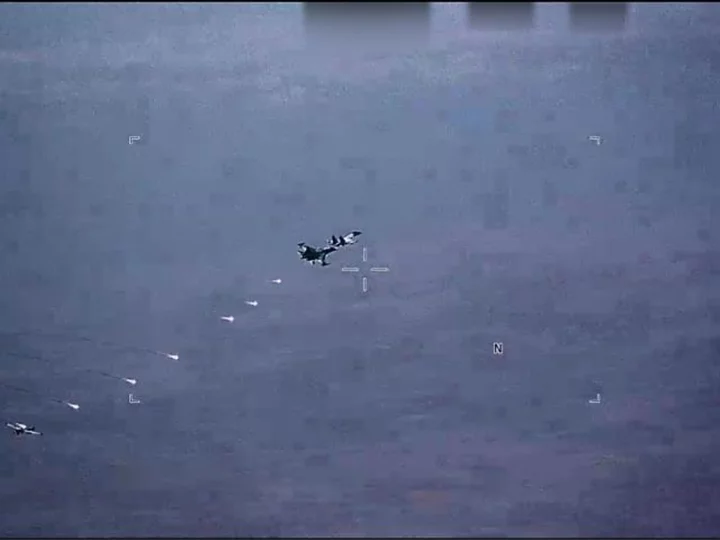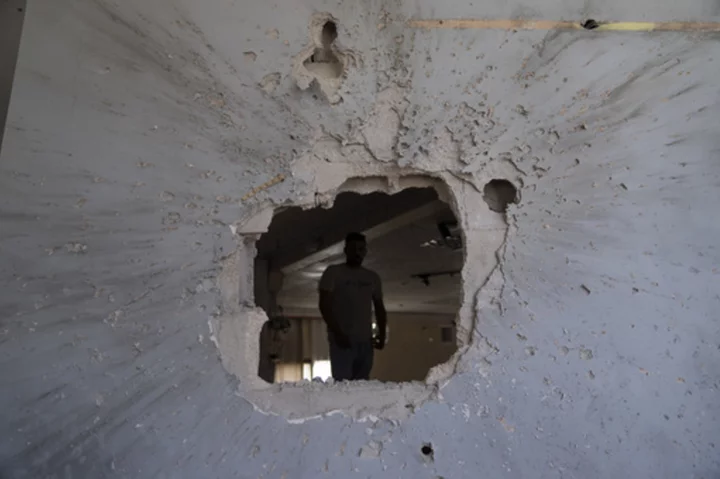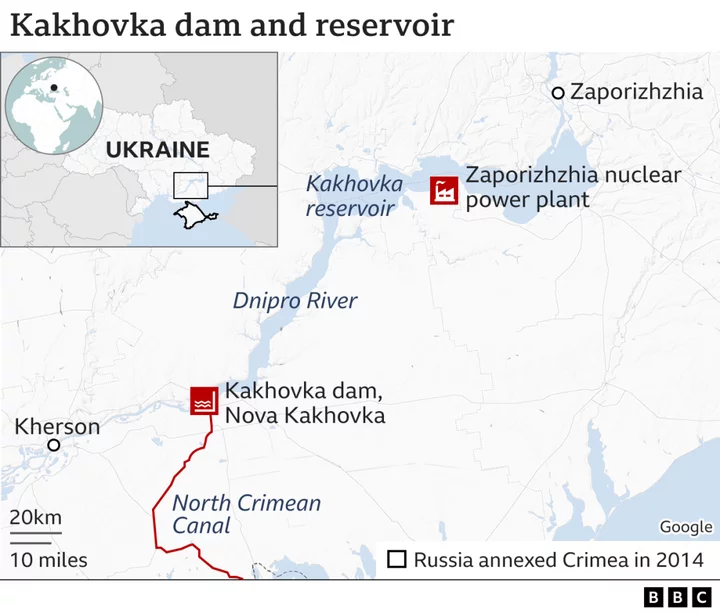Russian fighter jets harassed an American drone operating over Syria for the second time in two days, according to the US Air Force, a sign of increasing friction between the two countries in Middle East airspace.
On Thursday, a US MQ-9 Reaper drone was conducting a mission against ISIS targets in Syria when Russian fighter jets approached, Air Force Lt. Gen. Alex Grynkewich said in a statement about the incident. One of the Russian jets then began dropping flares in front of the US drone in an apparent attempt to hit the drone, forcing it to take evasive maneuvers.
Video of the encounter released by Air Force Central Command shows two Russian fighters flying near the US drone. One of the fighters then releases a series of flares as it passes over the drone.
"These events represent another example of unprofessional and unsafe actions by Russian air forces operating in Syria, which threaten the safety of both Coalition and Russian forces," Grynkewich said in a statement. "We urge Russian forces in Syria to cease this reckless behavior and adhere to the standards of behavior expected of a professional air force so we can resume our focus on the enduring defeat of ISIS."
The incident comes one day after three Russian fighter jets harassed three US drones over Syria. In the Wednesday encounter, the Russian jets dropped parachute flares in front of the US drones, forcing the drones to take evasive maneuvers. One Russian jet also lit its afterburner in front of a US drone, limiting the drone operator's ability to safely operate the aircraft.
But the US wasn't the only target of harassment from the Russian military. A Russian SU-35 fighter jet conducted a "non-professional interaction" with two French Rafale fighter jets that were flying a mission near the Iraq-Syria border on Thursday, according to the official Twitter account of the French Armed Forces. The French fighters maneuvered in order to avoid the risk of accident, the French military said.
Both the US and Russia are operating in Syria; the US as part of the anti-ISIS coalition, and Russia in support of Syrian President Bashar al-Assad.
Over the last several years, the US and Russia have used a deconfliction line between the two militaries in Syria to avoid unintentional mistakes or encounters that can inadvertently lead to escalation. But Russian military actions in Syria have increasingly violated the deconfliction protocols, including flying too close to US military bases in Syria and failing to reach out on the deconfliction line.
"We have been in Syria for many years now fighting ISIS as part of an international coalition," said Pentagon press secretary Brig. Gen. Pat Ryder at a briefing Thursday. "That is no surprise to anyone."
In April, a US official said the more aggressive actions from Russian pilots appear to be part of a "new way of operating," including one incident in which a Russian fighter jet attempted to dogfight a US fighter jet.
The aggressive behavior has happened outside of Syria as well. In March, a Russian SU-27 fighter jet collided with a US MQ-9 Reaper drone in international airspace over the Black Sea. The collision damaged the drone's propellor, forcing it to crash in the water.









